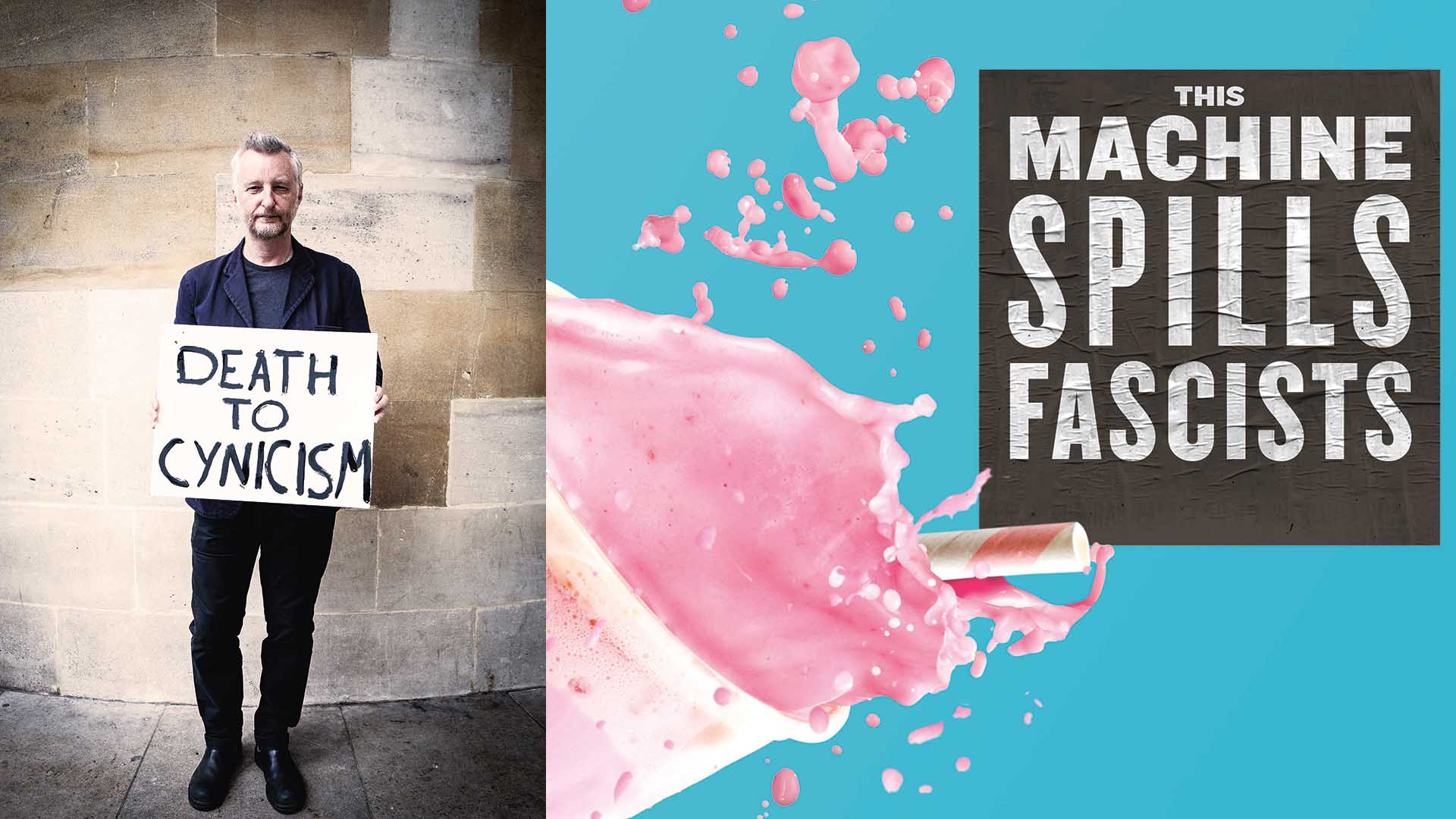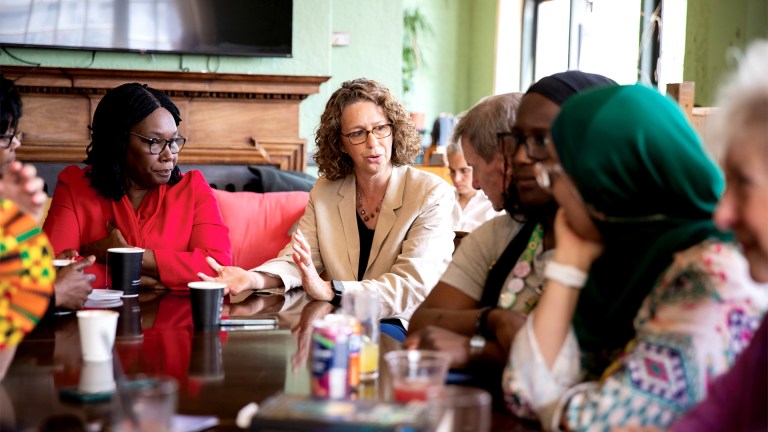When you put something on the side of a bus, it’s got to be true.
All other debate is increasingly polarised. How can that be fixed?
In order to get to grips with the big issues of the day we almost need a new language. It’s trying to set some framework for the discourse; simple, fundamental principles that are neither left nor right, like freedom, equality and accountability. There are some things missing in our political discourse. These are issues around veracity: when you put something on the side of a bus, it’s got to be true. Transparency, where does the money come from? We need to be asking those questions. But to get to that place we have to suspend our cynicism.
You write that freedom has meant different things at different times to different people. What do you think it means today?
I think the American idea of freedom has come to dominate, the idea of freedom as the unfettered self, being able to do whatever you want. If everyone did that it would be ruinous for society. In some ways, democracy was invented both to allow people to express their views but also to put limits on that so there is a balance between the individual and society. Freedom has many faces. When the face of freedom is emancipation everyone is in favour, but when it starts to veer off towards impunity – that’s what Nigel Farage is expressing when he refuses to answer Andrew Marr’s questions – that’s the gateway to tyranny.
Is Farage channelling Trump?
Trump has brought that, ‘I can say whatever I want and you can’t challenge me’ idea to the fore of our politics. Farage is starting to represent that being introduced to UK politics and we have to
resist that.
Advertising helps fund Big Issue’s mission to end poverty
How?
By holding people to account. Before the Second World War the British were trying to develop radar so they could see the bombers coming. Accountability is like our radar. Our radar against authoritarianism. There’s already too much anger in our discourse. We’ve got to find a way to respect people who disagree with us and deal with it when we’re challenged. There will be people who question you. You shouldn’t respond to those with anger, you
should respond politely but disagree with them. By being civil you’re being accountable.
What about combatting people who play on populism like Tommy Robinson or Carl Benjamin, who jokes about raping MPs?
There are a lot of different ways of doing that. There are people who double down when you catch them and then you have to look at other ways you might be able to hold them to account. Sometimes that’s through an online campaign to show what they’re saying is untrue or abusive. Or there’s milkshakes. The aim with accountability is drawing a line to say this is not acceptable. It’s not acceptable to joke about raping a female MP.
But that confirms their followers’ belief that the ‘establishment’ is against them…
Victimhood is a form of deflection, avoiding uncomfortable truths. This is the Trumpian agenda trying to come to British politics. It’s the same with anti-Semitism in the Labour Party. I’m not only after Carl Benjamin’s arse, I’m after anyone who thinks they’re a Labour Party supporter and thinks it’s OK to use anti-Semitic tropes. They need to be challenged just the same. We have to stand and fight on veracity.
Advertising helps fund Big Issue’s mission to end poverty
Both Corbyn and Brexit are manifestations of people wanting more agency.
You say populism has “little to offer the left-behind other than the visceral thrill of payback”. What are the long-term consequences when that influences elections?
What are the policies of the Brexit Party? What is in their manifesto? There’s nothing there. If the Brexit Party really wanted to serve the people who voted for Brexit there would be a lot of stuff about bringing capitalism to heel, giving people more agency in their lives. They don’t want to change the system, they just want to be in control. The take back control slogan is a manifestation of people’s sense that they have no agency over their lives. Power is exercised very far away, their lives are not reflected in the decision-making process.
Why have people been pushed to extreme ends of the political spectrum?
This is down to agency as well. Let’s take for instance the election of Jeremy Corbyn as leader of the Labour Party. I re-joined the party and voted for him because he said he was going to give members the right to make policy. There is a really great opportunity to have agency. At the other end of the spectrum, the EU referendum had a clear outcome, Leave/Remain, so a lot of people who had never voted before voted for Brexit because there was something they knew they would get. Both Corbyn and Brexit are manifestations of people wanting more agency. People are voting against the centre, and accountability is a way to bring that to them.
The Three Dimensions of Freedom by Billy Bragg is out now (Faber & Faber, £6)





